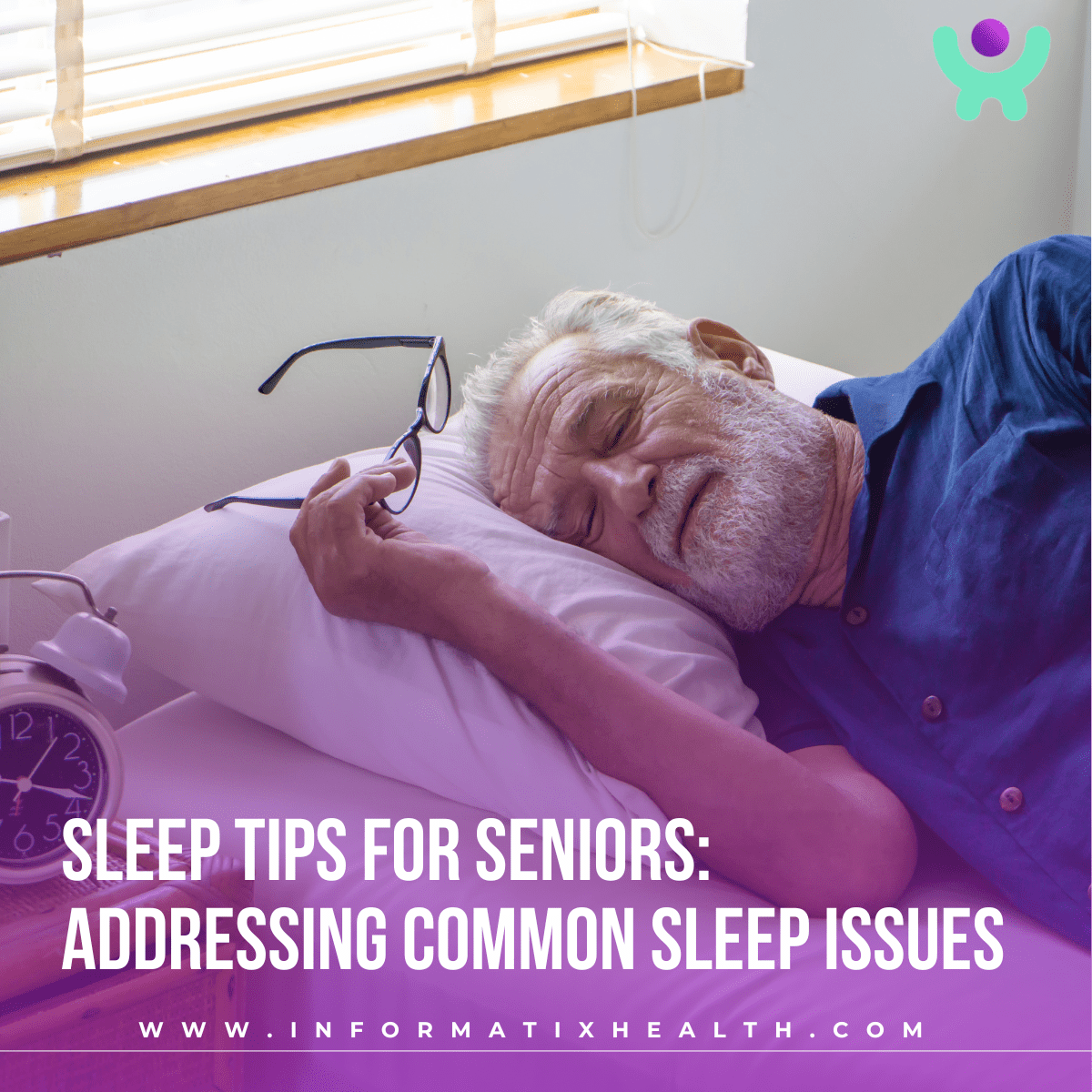As we age, achieving quality sleep can become more challenging. Common issues like insomnia and sleep apnea often arise, affecting overall health and well-being. Fortunately, there are strategies and solutions to help seniors enjoy better rest. Here are some practical tips to address these sleep problems:
1. Maintain a Consistent Sleep Schedule
Consistency is key when it comes to sleep. Going to bed and waking up at the same time every day helps regulate the body’s internal clock, making it easier to fall asleep and wake up refreshed.
2. Create a Sleep-Friendly Environment
A comfortable and quiet bedroom can make a significant difference. Ensure your sleeping area is:
- Dark: Use blackout curtains or a sleep mask.
- Quiet: Consider a white noise machine or earplugs if needed.
- Comfortable: Invest in a supportive mattress and pillows.
3. Limit Exposure to Screens Before Bedtime
The blue light emitted by phones, tablets, and TVs can interfere with the production of melatonin, a hormone that regulates sleep. Aim to avoid screens at least an hour before bedtime.
4. Be Mindful of Diet and Hydration
Avoid heavy meals, caffeine, and alcohol in the hours leading up to bedtime. These can disrupt your sleep patterns. Additionally, reduce fluid intake in the evening to minimize nighttime trips to the bathroom.
5. Stay Physically Active
Regular exercise promotes better sleep by reducing stress and regulating your body’s natural sleep-wake cycle. Aim for light to moderate activities such as walking, swimming, or yoga. However, avoid vigorous exercise close to bedtime.
6. Practice Relaxation Techniques
Relaxation exercises such as deep breathing, meditation, or gentle stretches can calm the mind and body, making it easier to drift off to sleep.
7. Address Underlying Health Issues
Conditions like arthritis, restless leg syndrome, or sleep apnea can significantly impact sleep. Consult with a healthcare provider to manage these conditions effectively.
8. Consider Sleep Apnea Treatment
Sleep apnea, characterized by interrupted breathing during sleep, is common among seniors. If you experience symptoms like loud snoring or excessive daytime fatigue, seek medical advice. Treatments may include CPAP therapy, oral appliances, or lifestyle changes such as weight management.
9. Limit Napping
While napping can be refreshing, long or late-afternoon naps can interfere with nighttime sleep. Keep naps short—around 20-30 minutes—and schedule them earlier in the day.
10. Seek Professional Help for Insomnia
If you consistently struggle with falling or staying asleep, consult a sleep specialist. Cognitive Behavioral Therapy for Insomnia (CBT-I) is an effective, non-drug treatment that addresses the root causes of insomnia. Quality sleep is essential for maintaining good physical and mental health, especially for seniors. By adopting these tips and seeking professional guidance when necessary, you can improve your sleep patterns and overall quality of life. Sweet dreams!


